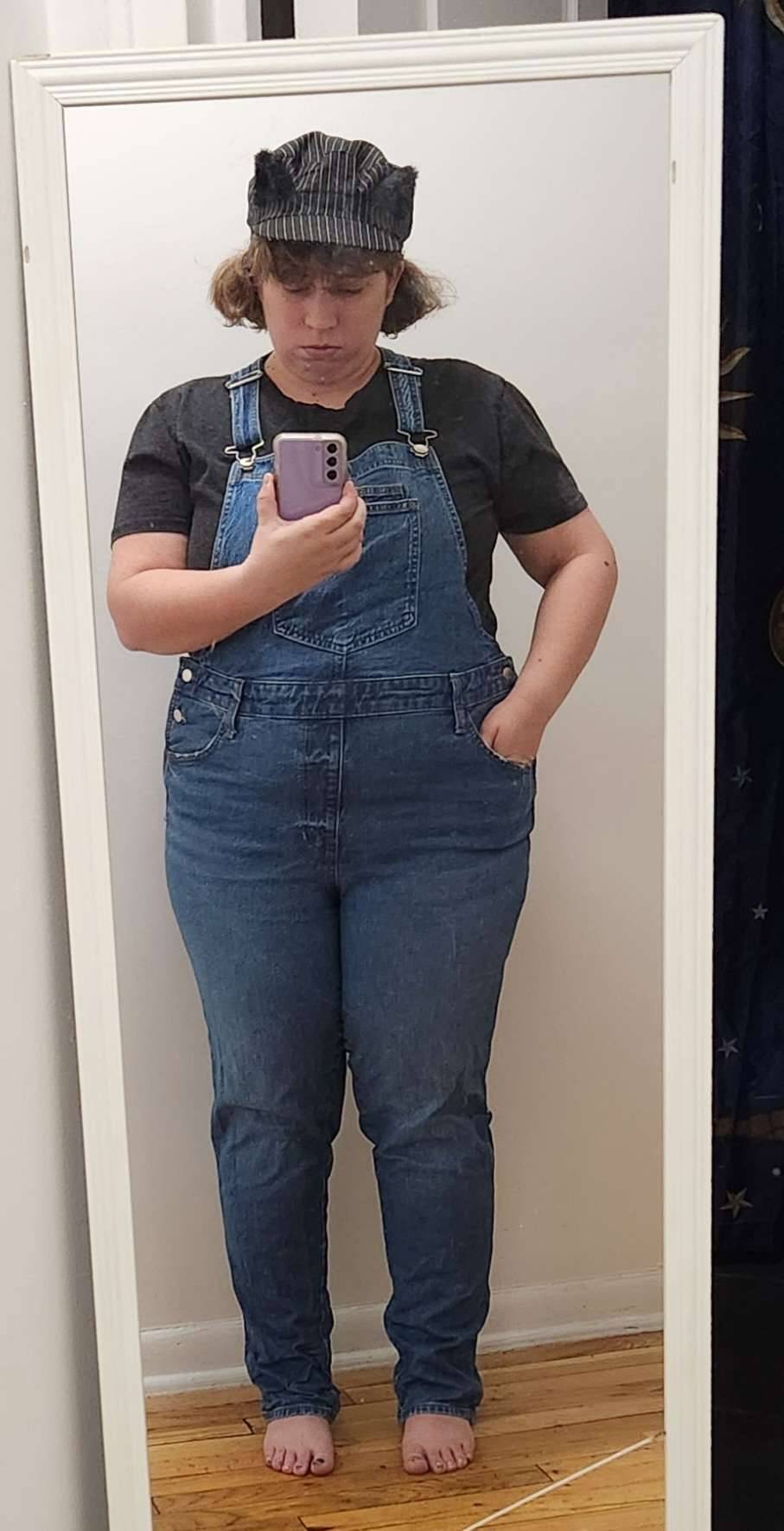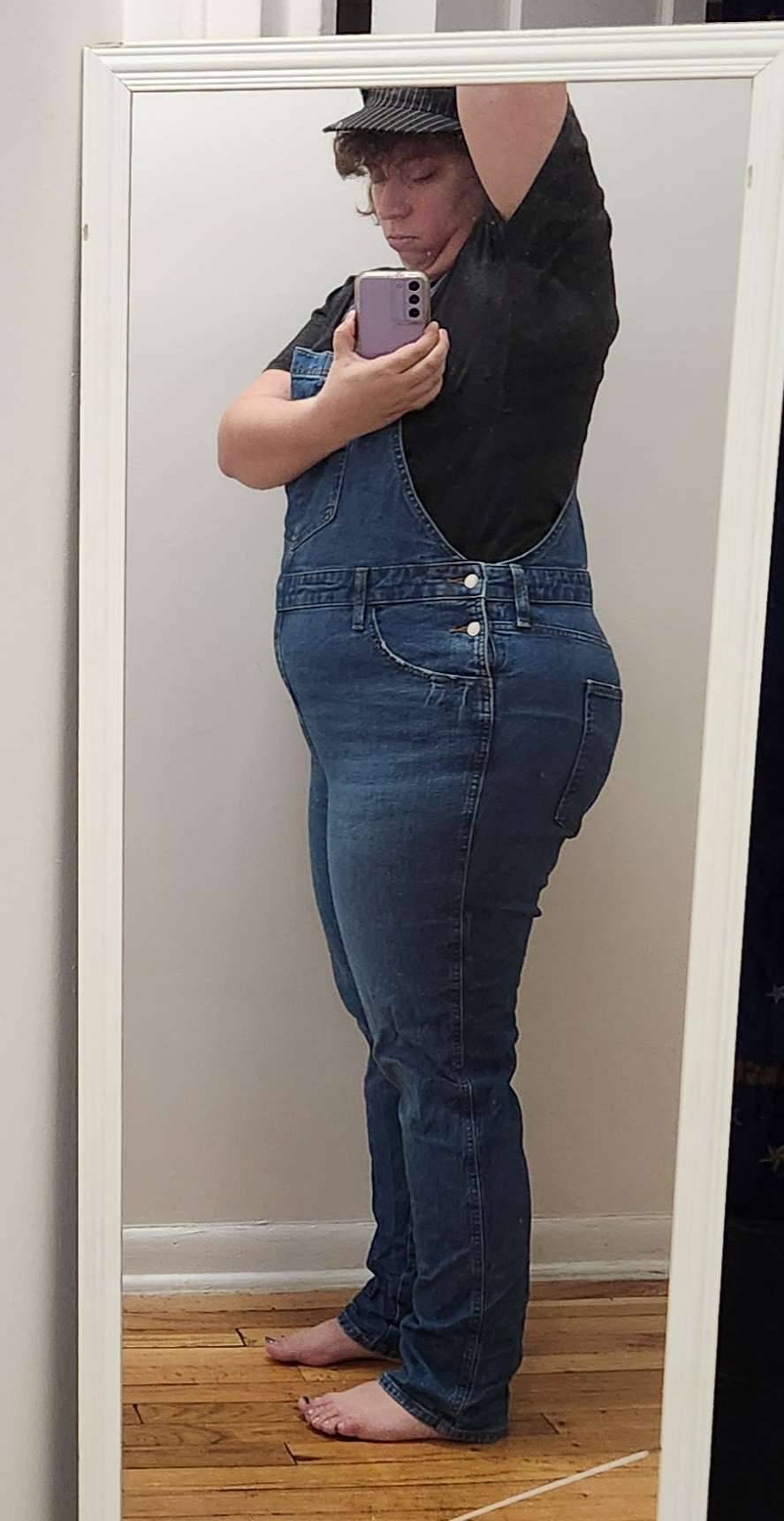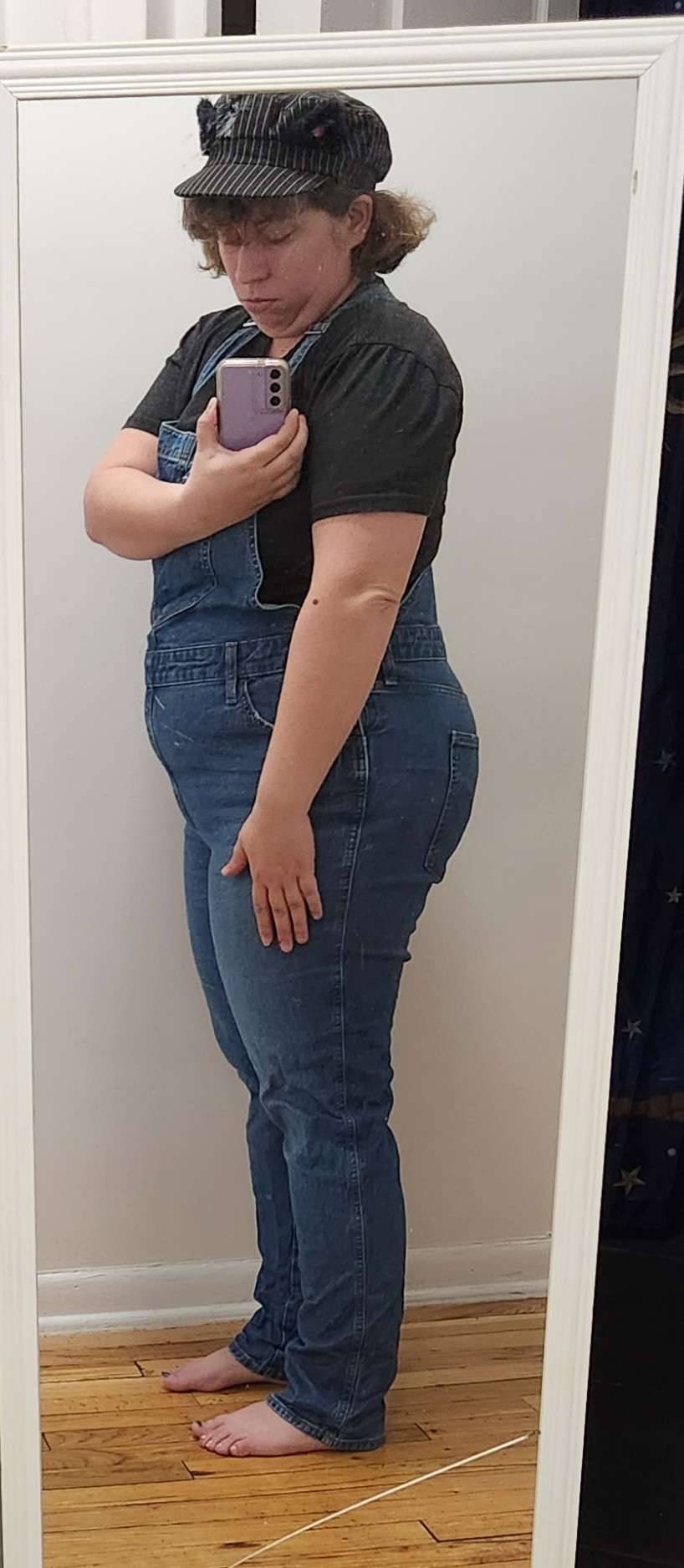Text
Best Weight Loss Medication for PCOS: Your Ultimate Guide to Managing Polycystic Ovary Syndrome
Find the Best Weight Loss Medication for PCOS! Explore Effective Solutions to Manage PCOS Symptoms and Support Your Weight Loss Journey. Learn about the challenges it presents for weight loss and explore effective strategies, including medication options, healthy lifestyle changes, and dietary tips. Best Weight Loss Medication for PCOS: Exploring Your Options Best Weight Loss Medication for PCOS…

View On WordPress
#best thyroid medication for weight loss#cardio vs weight training for fat loss#diet for pcos#diet for pcos weight loss#lose weight on thyroid medication#medication for pcod#metformin weight loss#pcos diet for weight loss#pcos diet plan for weight loss#pcos supplements for weight loss#pcos weight loss#pcos weight loss tips#thyroid medication lose weight#thyroid medication weight loss#tips to lose weight#weight-loss#weight-loss tips
0 notes
Text
Because my most popular post is about weight loss and how it's a crock, I get a lot of questions about various things, including bariatric surgery--just posted the link to the post I did about that--but also Ozempic/Wegovy, the once-weekly injectable semaglutide medication that was developed for diabetes but was found to have independent benefits on weight loss.
I always said that weight loss was like Viagra: when a medication came along that actually worked, it would explode. We'd all hear about it. Fen-phen in the 90s worked, but it was bad for your heart. Stimulants, like meth, may cause weight loss, but they do it at the cost of heart health, and raise your likelihood of dying young. Over the counter weight loss supplements often contain illegal and unlisted thyroid hormone, which is also dangerous for the heart if taken in the absence of a real deficiency. Orlistat, or "Alli," works the same way as the Olestra chips Lays made in the 1990s--it shuts off your ability to digest fats, and the problem with that is that fats irritate the gut, so then you end up with fatty diarrhea and probably sharts. Plus Alli only leads to 8-10lbs of weight loss in the best case scenario, and most people are not willing to endure sharts for the sake of 8lbs.
And then came the GLP-1 agonists. GLP stands for glucagon-like peptide. Your body uses insulin to make cells uptake sugar. You can't just have free-floating sugar and use it, it has to go into the cells to be used. So if your body sucks at moving sugar into the cells, you end up with a bunch of glucose hanging out in places where it shouldn't be, depositing on small vessels, damaging nerves and your retinas and kidneys and everywhere else that has a whole lot of sensitive small blood vessels, like your brain.
Glucagon makes your liver break down stored sugars and release them. You can think of it as part of insulin's supporting cast. If your body needs sugar and you aren't eating it, you aren't going to die of hypoglycemia, unless you've got some rare genetic conditions--your liver is going to go, whoops, here you go! and cough it up.
But glucagon-like peptide doesn't act quite the same way. What glucagon-like peptide does is actually stimulating your body to release insulin. It inhibits glucagon secretion. It says, we're okay, we're full, we just ate, we don't need more glucagon right now.
This has been enough for many people to both improve blood sugar and cause weight loss. Some patients find they think about food less, which can be a blessing if you have an abnormally active hunger drive, or if you have or had an eating disorder.
However, every patient I've started on semaglutide in any form (Ozempic, Wegovy, or Rybelsus) has had nausea to start with, probably because it slows the rate of stomach emptying. And that nausea sometimes improves, and sometimes it doesn't. There's some reports out now of possible gastroparesis associated with it, which is where the stomach just stops contracting in a way that lets it empty normally into the small intestine. That may not sound like a big deal, but it's a lifelong ticket to abdominal pain and nausea and vomiting, and we are not good at treating it. We're talking Reglan, a sedating anti-nausea but pro-motility agent, which makes many of my patients too sleepy to function, or a gastric pacemaker, which is a relatively new surgery. You can also try a macrolide antibiotic, like erythromycin, but I have had almost no success in getting insurance to cover those and also they have their own significant side effects.
Rapid weight loss from any cause, whether illness, medication, or surgery, comes with problems. Your skin is not able to contract quickly. It probably will, over long periods of time, but "Ozempic face" and "Ozempic butt" are not what people who want to lose weight are looking for. Your vision of your ideal body does not include loose, excess skin.
The data are also pretty clear that you can't "kick start" weight loss with Ozempic and then maintain it with behavioral mechanisms. If you want to maintain the weight loss, you need to stay on the medication. A dose that is high enough to cause weight loss is significantly higher than the minimum dose where we see improvements in blood sugar, and with a higher dose comes higher risk of side effects.
I would wait on semaglutide. I would wait because it's been out for a couple of years now but with the current explosion in popularity we're going to see more nuanced data on side effects emerging. When you go from Phase III human trials to actual use in the world, you get thousands or millions more data points, and rare side effects that weren't seen in the small human trials become apparent. It's why I always say my favorite things for a drug to be are old, safe, and cheap.
I also suspect the oral form, Rybelsus, is going to get more popular and be refined in some way. It's currently prohibitively expensive--all of these are; we're talking 1200 or so bucks a month before insurance, and insurance coverage varies widely. I have patients who pay anything from zero to thirty to three hundred bucks a month for injectable semaglutide. I don't think I currently have anyone whose insurance covers Rybelsus who could also tolerate the nausea. My panel right now is about a thousand patients.
There are also other GLP-1 agonists. Victoza, a twice-daily injection, and Trulicity, and anything else that ends in "-aglutide". But those aren't as popular, despite being cheaper, and they aren't specifically approved for weight loss.
Mounjaro is a newer one, tirzepatide, that acts on two receptors rather than one. In addition to stimulating GLP-1 receptors, it also stimulates glucose-dependent insulinotropic polypeptide (GIP) receptors. It may work better; I'm not sure whether that's going to come with a concomitantly increased risk of side effects. It's still only approved for diabetes treatment, but I suspect that will change soon and I suspect we'll see a lot of cross-over in terms of using it to treat obesity.
I don't think these medications are going away. I also don't think they're right for everyone. They can reactivate medullary thyroid carcinoma; they can fuck up digestion; they may lead to decreased quality of life. So while there may be people who do well with them, it is okay if those people are not you. You do not owe being thin to anyone. You most certainly do not owe being thin to the extent that you should risk your health for it. Being thin makes navigating a deeply fat-hating world easier, in many ways, so I never blame anyone for wanting to be thin; I just want to emphasize that it is okay if you stay fat forever.
772 notes
·
View notes
Text
This is a really difficult time of year for me now. It's been this way ever since I got sick.
Hashimoto's thyroiditis, the autoimmune thyroid disorder I have, causes both weight gain and weight loss resistance. At this time of year, everyone is bombarded with things about weight loss and exercise and all of that stuff, and it's really difficult when your body isn't capable of it. Exercise is difficult when your thyroid pushes on your trachea and makes it harder to breathe, and you can't do it very long anyway since the same issue has caused you muscle weakness. You have to take everything slower.
I used to enjoy hiking. I can't walk uphill now without being short of breath almost immediately because of the pressure going at that angle puts on my trachea.
It hurts to see all these people talking about how they're going to "improve" their bodies and become rail thin and lose weight and knowing that they think your body is unacceptable because you're sick and it won't change the way theirs will. Diet and exercise can't really do much when you have an autoimmune disorder, and when you try to find out more you find all these quack products and solutions that clearly don't work.
My weight's plateaued at the point it's been at for a few years now. I'm not really getting any bigger anymore, and most people don't even notice it even though I feel like I'm distended. It's dysmorphia on my end - I never look the way I do in my mind - but since I'm not completely flat with no body fat the people in the commercials and ads and medical professionals are all going to just keep trying to "fix" something that can't be fixed because I have an autoimmune disorder.
I want so badly to feel comfortable in this body, but it isn't considered attractive or beautiful or even acceptable by society at large, so it makes it so difficult to really be okay with it.
I'm dysmorphic. This is what I look like in reality.



Even looking like this, doctors like to focus on my weight, so you can imagine what people far bigger than me have to deal with.
I wish we could just move on from this, but it doesn't look like we will anytime soon.
62 notes
·
View notes
Text
Chrissy and the Female Athlete Triad
More Chrissyposting! Yay! This one is wordy and a little heavy on medical jargon but I promise it's interesting.
Another thing to think about when it comes to Chrissy Cunningham is the Female Athlete Triad. This is a concept from sports medicine which addresses three problems which tend to appear and snowball together in female athletes.
Low BMI (whether from high exertion/poor nutritional energy replacement and/or an eating disorder-- especially in sports where smallness is an ideal or beneficial for performance, such as cheer, ballet, gymnastics, figure skating, etc.)
Irregular or absent menstruation
Osteopenia/Osteoporosis
If you want to read some of the science around it, here's a PubMed article explaining stuff about prevalence, symptoms, mechanisms, effects, etc. (Please note, I'm not an expert or medical professional! None of this is medical advice! I just know about this from having an eating disorder while doing sports in high school and thought you Chrissy fans might be intrigued.)
Some things to know about the Female Athlete Triad:
As many as 70% of female athletes (in leanness-emphasizing sports) might lose their periods, compared to 2-5% of nonathlete girls. As many as 70% of athletes are dieting and may have disordered eating patterns/eating disorders (estimates of eating disorder prevalence in female athletes is 16-47%, vs 10% in nonathlete girls). As many as 22-50% of female athletes may have osteopenia, and up to 13% of female athletes may have osteoporosis (vs 12% and 2.3% in the general population, respectively). All that to say, these issues are all pretty prevalent in female athletes! Not all of these issues are necessarily present simultaneously, but none of them are unlikely in, say, the head cheerleader.
These issues can to make each other worse-- amenorrhea (loss of period) is associated with decreased leptin (hormone that makes you hungry), which can worsen the weight loss, and decreased estrogen, which makes osteoporosis worse. Insufficient food intake can make amenorrhea worse, and nutrient deficiency (calcium specifically) can also worsen osteoporosis.
Amenorrhea can be either primary (period doesn't appear by age 15) or secondary (loss of period for 3+ months after periods have begun). Secondary amenorrhea can be caused by suppression of the part of the brain that tells the menstrual cycle to keep moving (this results in estrogen deficiency, which can lead to mood swings, hot flashes, vaginal dryness, headaches, depression, fatigue, dry skin, and trouble concentrating-- plus make weight loss and bone strength worse), overstimulation of the parts of the brain that respond to stress (caused by very high, prolonged stress, which also tends to cause, y'know, psychological problems), or disturbances in a part of the brain that talks to the thyroid (leading to someone who doesn't have a thyroid problem, but looks like they do-- fatigue, constipation, feeling cold, joint/muscle pain, difficulty concentrating, thinning hair, rapid or slowed heart rate, weakness, etc.).
Poor coaching can be involved in the low food intake part of the issue-- if coaches don't inform their teams about proper nutrition, athletes may not even realize they need to increase their food intake to match energy expenditure from their workouts. They can also make things worse by praising/encouraging weight loss without care for how it happens. This was worse in the 80s before preventing eating disorders in female athletes became a big conversation.
Adolescence is a hugely important time for acquiring your bone mass, for women-- 25% of all bone mass accrual happens in the 2 years surrounding your first period, and 92% of bone mass is achieved by age 18. Bone problems in female athletes can take multiple forms, including insufficient minerals (not enough stuff to make your bones, so you don't have sturdy ones) and poor bone remodeling (bone cell formation can be interrupted, and if this happens the bone will be weaker and more prone to injury). Typically, female athletes have stronger bones than nonathletes because they're strengthening the bones with exercise, but amenorrheic and malnourished girls are observed to have significantly less bone mineral density (BMD) compared to girls who are eating well/have their periods, which overrides the benefit of sports for the bones. Tibial fractures (shins) are the most common. Also, if you don't make strong bones during the developmental period you're supposed to (adolescence), sometimes you never recovery and have weak bones for life.
Longterm complications may include infertility, decreased immune function, stress fractures/broken bones, permanent osteopenia/osteoporosis, and organ damage from nutritional deficiency.
Some implications for your fics and headcanons:
Often, when stress is reduced and eating goes back to normal, periods can come back very suddenly. When she moves out, enters recovery, or even just when she graduates and isn't cheering (regular intense physical activity) anymore, it may start up again, which might make her kinda mad (wouldn't you be?) or be a source of guilt (as in, are my problems really even that bad if my body is being normal again, why am I being So Dramatic, etc.)
Longterm menstrual dysfunction can lead to infertility. Laura, being Laura, may harp on her about it (either in her teenage years, as in "if you keep this up you'll never be able to have children and men won't want a broken woman" or later in life, as in "where are my grandchildren? your infertility is all your fault and I'm the real victim of it")
She may think she can't get pregnant due to her absent period. Her doctors/coaches may have told her this (it's not strictly true but this idea is not wholly uncommon even today, and back then before this was better researched it was sometimes spread by professionals) or, better yet, her teammates! A little locker room wink-wink-nudge-nudge "it's okay to put out, nobody will find out because we can't get pregnant, perks of being a cheerleader!" type deal is great for drama. Especially relevant if you're wanting to do a teen/surprise pregnancy fic. Relatedly, bone problems can cause complications during pregnancy/labor/birth (broken tailbone, broken pelvis-- ouch! and full of narrative conflict/drama!)
Decreased immune function -> sickfic. You're welcome.
Stress fractures are often overlooked at first, especially among athletes who are kinda used to treating their bodies like punching bags. Because they're not as obvious as a break, athletes might walk and exercise on them until they're excruciating. Y'know, not like Chrissy would ever do something like that, right?
Also, she's at permanent risk for health issues like fragile bones (easier to break a bone in the future, even without cheerleading) and organ problems (especially since her eating disorder is shown to involve self-induced vomiting, which is particularly catastrophic for organs like the heart, kidneys, stomach, and intestines). Great for medical drama even in stories where she's older.
Broken bones in minors are a big red flag in emergency rooms for abuse. Even if they come from sports, doctors/nurses may try to get Chrissy aside to ask about her home life if she comes in with a broken bone (it was the 80s so child abuse as a social topic was much less discussed, but a broken bone was still a flag at the time as I understand it). Conversely, Laura may not let her go to the doctor if she has a broken bone/stress fracture, either to prevent this discussion from taking place or because she believes Chrissy is faking/being overdramatic.
Anyway that was maybe a little incoherent but I hope it was helpful!
#chrissy cunningham#stranger things#st#st s4#stranger things 4#tw ed#laura cunningham#hellcheer#words of grace
26 notes
·
View notes
Note
Hello Haitch! Hope you are doing well.
Last year during summer, I was diagnosed with PCOS (i had gotten it checked because i hadnt had my period in like 3 months) and since i was just 17, the doctor asked me to maintain a proper lifestyle and see till November and said that if it wasnt fixed by then, i had to do a checkup again. But i'd gotten my period by august so i never reached out again.
but this year (im 18 now), the last time id gotten my period was in april so it's been 6 months now. im gonna go to the doctor again later this month. but here's the thing— last year, i went to a gyno abroad because women's healthcare isnt the best in my country. but this year, its not possible for me to go abroad right now so im gonna have to work with a gyno from here.
now i have a feeling that theyll put me on pills and while i agree thats the easy way to fix this, im worried itll mess things up for the long run. the lifestyle the first gyno asked me to follow is a little difficult for me to get into since she'd asked me to exercise plenty and im a full time alevel student and it gets hard for me to maintain a proper routine like that. i also struggle with binge eating which i've heard comes with having pcos (im not sure if this is true tho).
so in one hand, i feel like it's easier to just start taking pills but then again it has so many side effects i don't know what to do right now.
Lots to unpack here.
CW/TW: PCOS, medical discussion, endocrine disorders, diabetes, hypothyroidism, weight management, medication management
Firstly, PCOS is often diagnosed based on vague criteria; lots of doctors flippantly diagnose it based on a volume of loose criteria. If you have an increasing number of these criteria, then yes, the chances are you have PCOS. However, it's often erroneously diagnosed without proper diagnostic procedures such as scans, bloods, and a full review of your longer term health history.
That being said, being on the pill doesn't 'cure' PCOS, it can simply manage the symptom of irregular periods. There's flimsy evidence on the pill's ability to manage/prevent weight gain and the development of other disorders that are associated with PCOS.
While weight loss is often harder for women with PCOS, especially if you have associated conditions such as an under active thyroid, it's not impossible.
Your lifetime chances of developing Diabetes are significantly higher with PCOS, and this chance goes up again if you struggle with increased body weight. PCOS and appetite changes like binge eating have been associated with each other, too.
So you'll only know if managing your weight and eating habits make a difference with your PCOS, when you've actually tried them to the absolute best of your ability. If you are at an increased ideal weight, losing weight can be very effective to manage and reduce the symptoms of PCOS.
Of the many, many thousands of women I've looked after, I'm sorry to say that those with PCOS who are very pro-active with managing their weight, perhaps taking medications as advised by their doctor (the pill and Metformin are the most common ones I see), and exercising regularly, are those who have the highest chance of being 'healthy' (though I do not use the term 'healthy' lightly).
Ultimately, PCOS is one of those things that just happens and isn't your fault. I also have an endocrine disorder that makes it very easy for me to gain weight and very difficult for me to lose it, so I absolutely understand the situation yours in right now.
But, what do you do with this information? Do you say, "I am X, Y and Z because of my PCOS" and leave it at that? Or do you say "I suffer with X, Y and Z because of my PCOS, so I make life choices to reduce the impact of my PCOS by 1, 2 and 3".
So my advice is this: PCOS may be the hand you've been dealt, but your lifestyle choices can massively improve the chances of you reducing its impact on your long-term health. I'm not blaming you, or acting like healthy eating, exercise and medication decisions are easy; they are not. Please recall I'm in a similar boat, and I'm not one to blame women for their complex health conditions.
I could talk all day about PCOS but this is my best attempt to summarise it for you.
It's really hard making tough life choices to manage the hand you've been dealt. I fully understand. I've gotten better at it as I've gotten older. @mrhaitch makes similar big decisions, because he has two diabetic parents and one diabetic siblings, so he takes care of his health to a brilliant degree, to try to give himself the best chance of not developing diabetes himself.

☝️ me being your hype man
Love,
-- Haitch xxx
10 notes
·
View notes
Text
can i vent about the healthcare system lol
This year I have health insurance for the first time since I was a child and when I tell you it sucks, I hate this, I hate participating in this system, I miss when I was just in pain all the time and didn't even bother going to the doctor bc I didn't have insurance anyway, I don't love this system where I read my insurance policy and think something is covered and then it isn't except maybe it is and maybe it got processed by a bot and I have to call the insurance to dispute but then I have to call my doctor to dispute and then I have to call the insurance back to dispute like, guys I have phone anxiety I'm gonna just pay you all this money instead of making phone calls I guess.
i have nerve damage and my treatment options so far are a $1,300 shot that might not actually help and I'll have to get another one in a few months anyway or I can go to physical therapy where they want to see me 2x a week for $250 per session. My insurance only covers a certain number of sessions and even if I did go to all of them, I still wouldn't hit my deductible. The PT place has a financial assistance program but it's only for people who have hit their deductible. (What's the point lol).
I'm also at a dead end trying to get diagnosed & treated for hypothyroidism because "weight gain" is listed as a symptom and BCBS says they don't cover "weight loss" treatment even though that wasn't what the fuck I asked and I was more concerned that my hair is falling out and I'm freezing all the time. Like where does it end, every time a symptom of something includes weight gain. What if a skinny person has it. Is this discriminatory? Is it a coding error? Will I pay the $215 I got charged for having my thyroid tested and simply not continue treating it now, because I don't have the constitution to make 100 phone calls and argue with people? lol.
the spine specialist orders an MRI and says I'm too young to have surgery so I should just do pain management. the pain management doctor tells me to lose weight. (it's hard, because, I think my thyroid doesn't work.) he says lyrica might help with my nerve pain but it causes weight gain so he advises against it. i wonder at what point does BCBS decide that spine & nerve pain is because I'm fat and won't help me anymore because it's weight loss related.
And let's not talk about how I was like, you know what, I would rather just build up some medical debt and pay it off slowly because I'm terrified that I'm going to have permanent nerve damage, and I applied for financial assistance with the hospital, and they approved me, but they don't help for any bills which are under $2000. So my $900 MRI or my $400 nerve test or my $1300 shot are not eligible for financial assistance, even though my hospital balance would be over $2000. I go to set up a payment plan and it won't let me set the number I can afford. I manually enter a bit at a time and they won't stop emailing me that I owe them money because I didn't use the official interface for a payment plan. I call their financial assistance to ask why they didn't adjust my MRI bill, they tell me because it's under $2000, I get so overwhelmed and start crying on the phone like an asshole so I hang up before I remember to ask about adjusting the payment plan.
like is better that I'm now $1300 in the hole for tests that told me I have nerve damage and arthritis and disc degeneration when I can't afford any of the treatments? Is it better to at least know? But what's the point if I can't do anything about it anyway except YouTube yoga and Aleve for breakfast, which I was doing anyway when I was uninsured. Thanks, now I know! I cannot feel my leg! Pray for me that I don't wind up paralyzed from ignoring it!
(I think part of me committed to these tests because I was like, well, if there's NO damage I will know and I can stop worrying, but there is damage, so now idk how to feel.)
anyway it's just. I've always known this system was garbage from the outside when like, I've spent years having to treat things by myself at home, I've had so many times where I didn't go to the ER when I probably should've, I've passed on really fun outings with my friends like snowboarding or roller derby because I'm too scared I'll get injured, my mental health is at all times hanging on by a thread because I can't get medicated (put a pin in this one bc I finally got an appointment for an evaluation but my insurance doesn't cover most of the meds LOL). It already sucked on the outside and was already a huge embarrassment to me as an American but like. I finally have insurance and it wasn't' even worth it.
and like. there's stuff I can afford. I'm making better money than I did in my 20s. Like, okay, it sucks but I can pay $215 for my thyroid test at the end of the day. But I don't want to. It sucks and it's not fair. I shouldn't have to. And like it's $215 now and then how much later. It's not sustainable at all. And if there's a way for them to cover it and not discriminate against me for being fat, it's behind so many barriers of me trying not to cry my eyes out on the phone and tbh I don't see it happening LOL.
but elon is on track to become the first trillionaire and our taxes are bombing children in tents, cool cool cool
I just don't understand who the fuck this is even for. WHO is out there with $2,000 to drop every month on physical therapy. Who is this for!!! WHO IS IT FOR!!!!
#give me the healing blood tbh lol#sorry i feel like a tool crying about this to my friends too much LMAO ill just vent here i guess#[burn after reading voice] my memOIR!
9 notes
·
View notes
Text
Does anyone else have thyroid issues? Mine isn't working and I'm on medication for it but it makes weight loss so so slow. I've lost around 2kg in two weeks. When I was in this shit before, I dropped 10+ kg in two months.
#3ating d1sorder#3d f4st#4nor3xia#st4rv1ng#tw ana rant#tw ed ana#tw thinspi#⭐️ve#mealspø#tw skipping meals
7 notes
·
View notes
Text
if anyone tells you fatphobia isn’t real just know they noticed a new diabetic medication causes serious weight loss as a side effect and now there’s a shortage in it (in my country at least) because healthy people are buying it since it’s an over the counter medication (you can buy it without a prescription). Literally people with diabetes can’t find their medication because of this. This medication increases the risk of thyroid cancer, has nasty side effects that range from abdominal pain to constipation and it’s taken by injection and it’s vanishing from pharmacies. But yeah people dislike being fat because it’s “unhealthy”.
201 notes
·
View notes
Text
Ok. Pumpkin update when I should be filling out his medical forms or fighting fruitlessly with the pharmacy, my doctor's office, and insurance to get a replacement for the discontinued immunosuppressant I need to fight the damage covid did to my immune system, turning it against me even worse than the arthritis i had before.
To review, my Elder Statescat has:
Nineteen years
Feline herpes triggered by stress, causing cold sores/irritation inside nasal passages
Arthritis in his back legs
Hyperthyroidism since 2022, which dropped him from 12 to 10lb.
Chronic Kidney Disease confirmed Dec 2023
Congenital enlarged heart and intermittent heart murmur.
Which wasn't a problem until last checkup, when it showed ventricle thickening & constriction.
Probably the cause of a syncope (fainting) incident while I was in Texas. i've never seen that happen before.
Plus he's outlived his original owner. Her family, including vet tech granddaughter, are my neighbors.
Since December, kidney and heart disease have progressed, herpes flareups keep giving him cold-like symptoms, he's lost appetite (not normal with hyperthyroidism), and his thyroid med has stopped working. His weight has dropped to 8.4 and falling. 😢
When he first came to me, he was an overstuffed plush toy of 17 lbs.
But he's still opinionated and purring and talkative, and he just climbed up to bug me bc  I haven't been paying attention to him while writing this.
So, after ultrasounds to make sure there weren't other problems causing his loss of appetite, I've signed him up for Iodine-131 treatment on Sunday.
This is a Hail Mary: hyperthyroidism aggravates kidney disease and heart problems, and can cause nausea/ibs too. if we can get some weight back on him, maybe he'll have more reserves to fight the herpes flareup too.
Otherwise, I think we'll be saying goodbye pretty soon.
Even if it works, of course, he's old. The doctor's prognosis was 2 to 4 more years, with kidney disease finishing him off like most cats (including my last). But hopefully his quality of life will be better.
Wish the old man luck.

April 1, 2020 - Floofer pre-hyperthyroid

9 notes
·
View notes
Text
Ozempic: Dying To Be Thin
I have recently been following a few stories and commentators as they have reported on the side effects of Ozempic. My typical literary niche is mental health, inspiration and motivation for self-development. While I don’t follow the latest trends in any area I had followed the Ozempic one for some reason.
I think the part that interested me the most was many of the people who interviewed were willing to buy the drug on the black market, unverified websites and the like. Don’t read what I’m not writing I think it’s important not to point fingers but to have a holistic view of the Ozempic side effects issue.
As I researched the stories I found most of the cases were in the United States and the UK. In the ever-evolving landscape of healthcare, understanding the implications of medications is paramount. Most people are aware who follow Ozempic know it’s used for type 2 diabetes.
It gained prominence for weight loss in the last few years. I reviewed some history and current lawsuits due to the side effects. I was not aware that the side effects can affect vital organs and cause other unsettling concerns. Some may not be aware that drugs can be researched and more information can be reviewed on the FDA’s website.
Another thing that consumers can do is explore if there are current lawsuits or recalls on drugs before they start taking them. I know most people trust their health care professional but we should do our due diligence as well.
Ozempic, a member of the glucagon-like peptide-1 (GLP-1) receptor agonist class, plays a pivotal role in regulating blood sugar levels. However, like many pharmaceutical interventions, its therapeutic benefits are accompanied by a spectrum of potential side effects. These side effects vary in intensity and occurrence, impacting individuals in diverse ways.
I’m a therapist, not a physician or a nurse. I have treated many clients who struggle with weight loss or menopausal weight gain. Most of the clients I have served have found it difficult to lose weight as they have gotten older.
I have referred them to their primary care doctor. With that said some people want a quick fix for whatever reason and I can see the frustration and all the concerns that go with trying to lose weight and obtain wellness.
My concern with the latest trend of those on Ozempic is the side effects and the those that may not be informed enough on those who are dying as a result of using Ozempic or the generic form of it.
Commonly reported side effects of Ozempic encompass gastrointestinal disturbances, with nausea and diarrhea being prevalent among users. These effects are often transient, diminishing over time as the body adjusts to the medication. Concurrently, injection site reactions, another common occurrence, may manifest as redness, swelling, or itching.
While these side effects are generally considered mild, their prevalence underscores the importance of patient awareness and proactive management. As I listened to story after story most of the people had other chronic illnesses as well.
Beyond the scope of common side effects lie more serious complications that demand heightened attention. Instances of pancreatitis, though rare, have been associated with the use of Ozempic. Pancreatitis, characterized by inflammation of the pancreas, necessitates immediate medical intervention and underscores the need for vigilant monitoring during Ozempic therapy.
Additionally, concerns have been raised regarding the potential association between Ozempic and thyroid tumors. Though the risk is deemed low, healthcare practitioners and users alike must remain vigilant, emphasizing the importance of regular health check-ups and communication between patients and their healthcare providers.
It is essential to recognize the symbiotic relationship between healthcare education and the communication of potential side effects. In the digital age, individuals often turn to search engines for health-related information.
I will say most of what I found were researchers on YouTube and science journals that are talking about the side effects of Ozempic a little more now. Thus, effective communication becomes a conduit for informed decision-making. Utilizing search engine optimization (SEO) strategies ensures that information about Ozempic’s side effects is readily accessible to those seeking it.
I’m a news buff and enjoy all things science and this story was disturbing because people were and are dying from one thing but the root cause was from taking Ozempic. I hope people will do their due diligence so not one more person has to die to be thin.
For those who may be interested in strategic keyword integration, such as “Ozempic side effects” or “Ozempic complications,” the dissemination of valuable information becomes more efficient and widespread.
Thank you for reading
Be Well!
#inspiration#self love#motivation#self help#self improvement#self care#glow up#glow up era#becoming that girl#manifesation#self confidence#self development#self awareness#personal growth#positive mindset#self growth#growth mindset#priorities
10 notes
·
View notes
Note
Hi! Sorry if this is a silly question. I've read your weight loss posts and I'm wondering how exactly weight loss can still happen in some individuals. If the body is resistant to losing weight then how does it work? Is it starvation? Thanks!
A lot of things can cause weight loss! For example:
-cancer
-eating disorder
-various heart conditions
-autoimmune disorder
-gastroparesis
-short-term weight loss from caloric deficits (expect rebound weight gain afterwards)
-liposuction
-Kybella (a fat-dissolving enzyme)
-thermal energy delivered to the fat layer via radiofrequency (SculpSure) or cryogenic treatment (CoolScupt)
-extreme stress--the mechanism behind this one is often that "fight or flight" and "rest and digest" are directly opposing systems, so when fight/flight is activated, blood flow is actively diverted away from the gut and towards skeletal muscles to enable you to run; if this is kept up long-term, you'll get nauseated because the blood flow to the gut is critical to digestion
-amphetamines
-inappropriate thyroid medication use
-intentional or unintentional dehydration (see my post "What Does Water Weigh?")
And if the question is, "If exercise doesn't lead to weight loss, why do I like how my body looks when I exercise?", the answer is "your body redistributes mass and when you're buffer you have more muscle and that looks 'better' to our eyes," not "you weigh less."
66 notes
·
View notes
Text
celebrities going on ozempic for weight loss instead of using their insane wealth to get a personal chef and personal trainer is insane. imagine having all the means to be in the best shape of your life and instead you use diabetes medication that raises your risk of thyroid cancer and blood clots because it's "easier". and then you don't even look healthy you just look skinny. all ozempic celebrities look like re-animated corpses their cheeks are sunken in their skin sags more than i've ever seen and their eyes are empty. i imagine the last part is the guilt for causing a shortage of a vital medication for a disease that just 100 years ago was basically terminal. freaks.
#also the vast vast VAST majority were not unhealthily overweight either. they all looked totally fine and normal and pretty/handsome#and now they look terrifying#ozempic
6 notes
·
View notes
Text
WEIGHT LOSS (July/September) mini post

Well first of all I want to tell you that like everyone I have daily binges but in moderation (it is important not to romanticize having binges because this makes you feel comfortable and familiar with these scenarios BINGE EATING IS NOT OK)
To start this mini post I will begin by mentioning my weight since July 26th, which was 56 kilos, currently I weigh 48 kilos (I will attach photos at the end) the diet I was following was the liquid one but I modified some parts because I had a recovery and had lost the habit of not eating anything solid:
Monday: Eat only once a day
Tuesday and Wednesday: liquids (water, green tea and black coffee)
Thursday: fasting
Friday:Eat only once a day
Saturday and Sunday: 600 cals max.
I was also doing a waist routine that you will see the radical change it made in me, normally I am too lazy to exercise so if you don't see intensity in the routines I did please don't hate me 😞 I did these routines twice a day in the mornings and at night and I did a repetition of each video 2 times.
I did this routine day after day until today but I have now lowered the intensity (mistake), now I will give you daily habits that helped me not to fall and continue with my weight loss process.
Hábits
Meditate: this frees my body and mind from any anxiety and stress that occurs in everyday life, it helps a lot because stress and anxiety first cause an impulsive reaction to eat.
Drink two liters of water
Do yoga: it has helped me a lot now since due to health problems I had to cut back on the little exercise I used to do, plus you can combine it with pilates and you will have divine results
Walk: I go for a walk during my university breaks or when I have the chance, I love walking!!
Laxatives: I know this is not a good habit but taking laxatives also greatly influences my weight loss
Vitamins
Medicines that help lower blood sugar BE CAREFUL ⚠️ I know this is completely wrong because in the long run if you don't have blood sugar or cholesterol problems you will suffer from diseases such as hypoglycemia, kidney problems and thyroid hormone problems, the medication I was taking is called metformin
And last but not least, smoking.
This was all I did to lose weight in these months. I know it's not much, but I'm happy with the results I've obtained.

Follow the group
🪻 𝐵𝑂𝑁𝐸 𝐴𝑁𝐷 𝐵𝐿𝑂𝑂𝐷 https://chat.whatsapp.com/HpDPPHg8CAOHQHbbA11Vfj
Blue Whale Group 🐋🦴👑 https://chat.whatsapp.com/GI2MX7MJBGJ9eu3IQPFydg
Bye bye !!
#4norexla#thinspø#ed but not ed sheeran#tw ana rant#tw ed ana#3ating d1sorder#low cal restriction#anadiet#anor3c1a#ana rexx
6 notes
·
View notes
Text
What are the Causes of Late Periods? A period is a natural part of a woman's life, and its arrival, or lack thereof, can be a source of curiosity or concern. While a late period might send your mind racing to pregnancy tests, there are numerous reasons why your period might be behind schedule. Let's discuss the world of menstrual cycles and explore the top causes of late periods.
Pregnancy: The Obvious One
We can't ignore the most common reason for a missed period – pregnancy. If you're sexually active and haven't used contraception, a late period could be the first sign of a bun in the oven. However, it's important to note that pregnancy tests might not be conclusive in the very early stages. For accurate results, wait at least a week after a missed period before taking a test. You can also visit or take an online consultation with our specialist doctor Geetanjali Thakur , the best Gynecologist in Karnal.

Hormonal Harmony: When Things Get Out of Sync
Our bodies are like intricate orchestras, and hormones play the lead role in regulating our menstrual cycles. When these hormones get out of sync, it can lead to a late period or even missed periods altogether. Here are some common hormonal culprits:
● Polycystic Ovary Syndrome (PCOS): PCOS is a hormonal imbalance that affects ovulation, leading to irregular periods or their absence.
● Thyroid Issues: An overactive or underactive thyroid can disrupt hormone production, impacting your cycle.
● Birth Control: Starting, stopping, or switching birth control methods can disrupt your cycle for a few months as your body adjusts to the hormonal changes.
● Perimenopause: As you approach menopause, your estrogen levels naturally decline, leading to irregular periods or their absence.
Lifestyle Choices: Big Impact on Small Cycles
Our daily habits can significantly impact our menstrual health. Here's how some lifestyle choices can cause a late period:
● Stress: Chronic stress wreaks havoc on our hormones, including those regulating periods.
● Weight Fluctuations: Dramatic weight loss or gain can disrupt ovulation and lead to irregular periods.
● Excessive Exercise: While exercise is great for overall health, excessive workouts can put stress on your body and cause missed periods.
● Diet: Crash diets or restrictive eating habits can deprive your body of essential nutrients needed for a regular cycle.
Medical Conditions: When Other Factors Come into Play
Certain medical conditions can also affect your menstrual cycle and you should search Gynecologist dr near me and get the best solution, here are a few examples:
● Chronic illnesses: Conditions like diabetes, celiac disease, and autoimmune diseases can disrupt hormone regulation and lead to irregular periods.
● Pelvic inflammatory disease (PID): This infection of the reproductive organs can cause irregular periods.
● Uterine fibroids: These benign tumors in the uterus can sometimes cause heavy or irregular periods.
When to See a Doctor
While a late period is sometimes nothing to worry about, there are situations where it's best to consult a Gynecologist near you. Here are some red flags:
● You miss multiple periods in a row (especially if you're not pregnant or breastfeeding).
● Your periods are unusually heavy or painful.
● You experience abnormal vaginal bleeding.
● You have sudden weight loss or gain.
● You suspect you might have an underlying medical condition.
Taking Charge of Your Cycle
Understanding your menstrual cycle and its potential disruptions empowers you to make informed choices about your health. Here are some tips for keeping your cycle on track:
● Maintain a healthy weight.
● Eat a balanced diet.
● Manage stress effectively.
● Exercise regularly, but don't overdo it.
● Track your periods using a calendar or app.
● Talk openly with your doctor about any concerns.
Remember, a late period doesn't necessarily mean something is wrong. However, if you're concerned, don't hesitate to consult a Gynecologist near me. They can help you determine the cause and recommend the best course of action.
Additional Considerations
This blog post provides a general overview of common causes for late periods. It is not a substitute for professional medical advice. If you have any specific concerns about your menstrual cycle, consult your doctor for personalized guidance.
Concerned about your late period? Don't wait!
Schedule an appointment with the expert gynecologists Karnal. Our team can provide personalized guidance and address any questions you might have. Visit our website to book an appointment today!
2 notes
·
View notes
Text
Not a good start to the week. Endocrinologist will be looking into if anything is going on and testing my hormones but it’s going to take a month to get just the preliminary tests done. There will be a labs done but to get the most accurate results the labs have to be done on the second day of my period. First, I have never been able to predict the exact day my period starts. Also, it usually starts at the very end or very beginning of the month which is still two weeks out. Then it takes time to get the results. Ugh, I just want an answer now!😖
But now I’m also wondering if I even have hypothyroidism. I’m looking back and I remember when I was diagnosed. It was the same doctor that offered me the wegovy last year as well as let my thyroid level drop to .031. (a normal value starts at .45). But she did a blood test and offered me levothyroxine. That’s it. Didn’t tell me how to use it. Didn’t tell me my levels should be checked every 3 months. Didn’t mention it ever again. So was this all a mistake? Is this all because a doctor misdiagnosed and then neglected my medical care?
Finally, once again I got offered wevovy. I hate myself although I kind of walked myself into that one by talking about how desperate I am to lose weight and how impossible it’s been for me to do anything about it. So, yet again, I’m explaining that I already have the side effects (nausea, gastrointestinal issues) and that it works on hunger/fullness cues and I haven’t had those in years. So she backed off. But wtf? Why are you offering someone with an eating disorder a dangerous and ineffective weight loss medication? Oh, yeah, it’s because…,
5 notes
·
View notes
Text

In Baltimore City, MD: Fan favorite bonded pair: 'Layla' and 'Roc' (boxer mix) are looking to retire together! - BARCS, Baltimore MD
Layla- 7 years, altered female, 75lbs
Roc- 7 years, altered male, 90lbs
This cute duo is a total of 165lbs of pure love! Layla and Roc are brother and sister (not blood related) and have bee through our shelter numerous times, and we're determined to find them a forever home now where they can spend the rest of their golden years in comfort- together.
Over the years, these two siblings quickly became a fan favorite among staff and volunteers alike. When out together, Roc is just looking for pets and Layla runs circles around him! She loves the splash pad in the shelter's play yard, too. Roc doesn’t love water as much as his sister, but will happily hydrate as his sister stomps and splashes around.
Layla and Roc like to play with one another but due to some weight limitations, it’s a more leisurely play style and nothing too wild. Both dogs are housebroken and have been very friendly with everyone they meet!
Sweet Layla is deaf, however she gets around just fine and has no problem looking up to her brother. They also walk quite well on leash!
Both dogs are considered obese and could benefit from weight loss, though they are not on a special diet at this time. Layla is on oral medication for some itchy skin and Roc is currently on an oral thyroid medication.
After everything they've been through, Layla and Roc deserve some stability, and to not spend any more time in the shelter.
Please let us know if your organization can help!
Thank you,
The BARCS Rescue Team
Baltimore Animal Rescue & Care Shelter (BARCS)
New Address! 2490 Giles Rd, Baltimore, MD 21225
[email protected]| (410) 396-4695
Rescue pick-up hours:
Monday-Friday: 10:30 a.m.-6:30 p.m.
Saturday and Sunday: 8:30 a.m.-4:30 p.m
Adoption hours:
Monday-Friday: 2 p.m.-6 p.m.
Saturday and Sunday: 11 a.m.-4 p.m.
Baltimore Animal Rescue and Care Shelter, Inc. (BARCS) | 2490 Giles Rd, Baltimore, MD 21225
#dog rescue maryland#dog adoption maryland#dog rescue baltimore maryland#dog rescue#doglover#cute animals#pets#adopt a dog#senior dog rescue baltimore maryland#bonded pair rescue maryland#bonded pair#deaf dog#boxer
8 notes
·
View notes